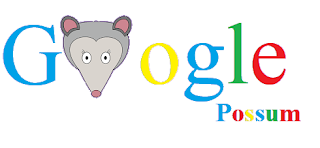Google Algorithm Updates
Google Algorithm Updates
What Is Google algorithm?
Google’s algorithms
are a complex system used to retrieve data from its search index and instantly
deliver the best possible results for a query. The search engine uses a
combination of algorithms and numerous ranking signals to deliver webpages
ranked by relevance on its search engine results pages (SERPs).
How search algorithm work?
With the amount of information available on the
web, finding what you need would be nearly impossible without some help sorting
through it. Google ranking systems are designed to do just that: sort through
hundreds of billions of webpages in our Search index to find the most relevant,
useful results in a fraction of a second, and present them in a way that helps
you find what you’re looking for.
Major Google Algorithm Updates
1. GOOGLE PANDA
 |
| Google panda |
Google Panda is a major
change to Google's search results ranking algorithm that was first
released in February 2011. The change aimed to lower the rank of
"low-quality sites" or "thin sites" in particular
"content farms", and return
higher-quality sites near the top of the search results.
Launched Date: Feb 24, 2011
Goal: De-rank sites with low-quality content.
2. GOOGLE PENGUIN

Google Penguin

Google
Penguin aims to identify and
down-rank sites with unnatural link profiles, deemed to be spamming the search
results by using manipulative link tactics. Since late 2016, Penguin has been part of
Google’s core algorithm, it works in real time.
Launched Date: April 24, 2012
Goal: De-rank sites with spammy and manipulative link profiles.
Confirmed penguin updates
Penguin 1 on April 24, 2012
Penguin 2 on May 26, 2012
Penguin 3 on October 5, 2012
Penguin 4 (also known as Penguin 2.0) on May 22, 2013
Penguin 5 (also known as Penguin 2.1) on October 4, 2013
Penguin 6 (also known as Penguin 3.0) on October 17, 2014
Penguin 7 (also known as Penguin 4.0) on September 23, 2016
3. GOOGLE HUMMINGBIRD

Google Hummingbird

Google Hummingbird places greater emphasis on natural language queries, considering
context and meaning over individual keywords. It also looks deeper at content
on individual pages of a website, with improved ability to lead users directly
to the most appropriate page rather than just a website's homepage.
Google Hummingbird is a major algorithm change that has to do
with interpreting search queries, (particularly longer, conversational
searches) and providing search results that match searcher intent,
rather than individual keywords within the query.
Launched Date: August 22, 2013
Goal: Produce more relevant search results by better understanding
the meaning behind queries.
4. GOOGLE
PIGEON

Google Pigeon

The main goal of this update (Google Pigeon) is to rank websites higher on SERPs based on
location and distance from where a particular user is querying for information.
After this update, the websites listed in the local directory
started to rank higher on SERPs for a particular location search within a
specific distance. This update was majorly helpful to local business and users
looking for services at their nearby localities.
Launched Date: July 24, 2014
Goal: Provide high
quality, relevant local search results.
5. MOBILEGEDDON-MOBILE
FRIENDLY UPDATE

Google Mobilegeddon

Google's Mobile Friendly Update is meant to ensure that pages
optimized for mobile devices rank at the top of mobile search, and
subsequently, down-rank pages that are not mobile friendly.
The main effect of this update was to give priority to
websites that display well on smartphones and other mobile devices. The change
did not affect searches made from a desktop computer or a laptop.
Launched Date: April 21, 2015
Goal: Give Mobile friendly pages a ranking boost in mobile SERPs,
and de-rank pages that aren’t optimized for mobile.
6. GOOGLE RANKBRAIN

Google RankBrain

RankBrain is
a machine learning-based search
engine algorithm, the use of which was
confirmed by Google on 26 October
2015. It helps Google to process search
results and provide more relevant search results for users
Launched Date: October 26, 2015
Goal: Deliver better search results based
on relevance & machine learning.
7. GOOGLE POSSUM

Google Possum

Google Possum update (nicknamed by SEO community) was launched in
September 2016 to give a boost to a local business that is closer to the city limits
(in the border) but technically out of the city.
Google realized that such businesses should be listed on
local search results for that particular city, even though they are technically
out of the city.
In the same update, Google also swept away the search
rankings of a website that had multiple listings for the same sites in
different individual’s names. Google filtered out such duplicate entries based
on phone number, domain name and physical address of the listing.
Launched Date: September 1, 2016
Goal: Deliver
better, more diverse results based on the searcher's location and the business
address.
8. GOOGLE FRED

Google Fred

Google Fred update was launched in March 2017. Its main aim was to lower
the ranking of websites or web pages that content-wise added no value to users
but were completely focused on aggressive monetization through advertisements.
Launched Date: March 8, 2017
Goal: Filter out low quality search results whose sole purpose is
generating ad and affiliate revenue.
9. GOOGLE BERT

Google Bert

Google BERT stands
for Bidirectional Encoder Representations from Transformers and is an update to
the core search algorithm aimed at improving the language understanding
capabilities of Google.


nice information
ReplyDelete